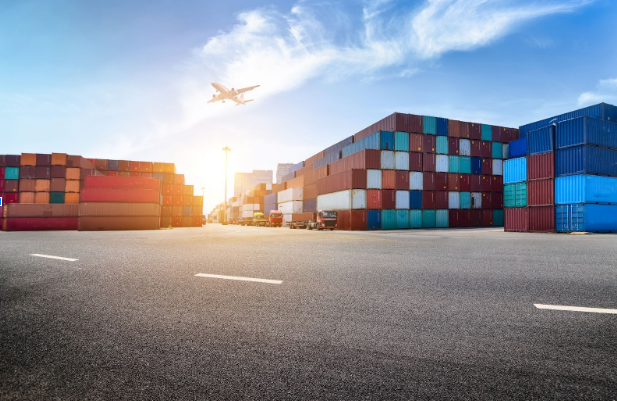Logistics management plays a critical role in the success of businesses, particularly in today’s fast-paced and customer-centric market. With the rise of e-commerce and the increasing demand for speedy deliveries, the concept of last mile logistics has gained significant importance. Last mile logistics refers to the final leg of the supply chain, where goods are delivered directly to the end customer.
Here below discussion explores the reasons why businesses need logistics technology and why focusing on last mile logistics is important for meeting customer expectations and achieving Warehouse management system benefits.
- The Importance of Logistics Technology
Logistics technology is a game-changer for businesses across various industries. It provides the necessary tools and capabilities to streamline supply chain operations, enhance efficiency, and improve customer satisfaction. With logistics technology, businesses can optimize their processes, gain real-time visibility into their supply chain, and make data-driven decisions. By embracing logistics technology, companies can stay ahead of the competition, adapt to market dynamics, and deliver exceptional service to their customers.
- Understanding Last Mile Logistics
Last mile logistics is the final and often the most challenging stage of the supply chain. It involves delivering goods from a fulfillment center or warehouse to the end customer’s doorstep. The last mile is crucial because it directly impacts customer satisfaction and overall brand perception. Customers expect fast, reliable, and convenient deliveries, and businesses that can fulfill these expectations gain a significant competitive advantage. Therefore, focusing on last mile logistics is essential for businesses aiming to thrive in today’s market.
- Meeting Customer Expectations
In the age of e-commerce and instant gratification, customers have come to expect fast and hassle-free deliveries. Businesses that can provide quick and reliable last mile deliveries have a higher chance of satisfying their customers and fostering repeat business. By leveraging logistics technology, companies can optimize their delivery routes, track shipments in real-time, and provide accurate delivery estimates. These capabilities help businesses meet customer expectations, build trust, and enhance the overall customer experience.
- Enhancing Operational Efficiency
Efficient last mile logistics can significantly improve a business’s operational efficiency. With the help of logistics technology, companies can automate various tasks such as route planning, dispatching, and driver allocation. This automation reduces manual errors, minimizes fuel consumption for a better fuel management system, and optimizes resource utilization. By focusing on last mile logistics and leveraging technology solutions, businesses can streamline their operations, reduce costs, and achieve higher productivity.
- Overcoming Last Mile Challenges
The last mile poses unique challenges for businesses. Factors such as traffic congestion, unpredictable customer availability, and the need for multiple delivery attempts can make it difficult to execute successful deliveries. However, logistics technology can help overcome these challenges. Real-time tracking allows businesses to monitor delivery progress and adjust routes if necessary. Advanced analytics can also provide insights into delivery patterns, enabling businesses to optimize their operations and minimize disruptions.
- Improving Customer Communication
Clear and timely communication with customers is crucial for last mile logistics. Businesses need to keep customers informed about the status of their deliveries and any potential delays. Logistics technology provides communication channels such as SMS alerts, email notifications, and delivery tracking links. These tools help businesses keep customers updated throughout the delivery process, reducing anxiety and enhancing transparency.
- Enabling Same-Day and On-Demand Deliveries
The rise of on-demand services and the expectation for same-day deliveries have placed additional pressure on businesses to provide fast and flexible delivery options. Logistics technology plays a pivotal role in enabling businesses to meet these demands. By leveraging technology solutions, companies can optimize their operations, shorten delivery times, and offer convenient delivery windows. This flexibility allows businesses to cater to customers’ varying needs and gain a competitive edge.
- Leveraging Data for Continuous Improvement
Logistics technology generates vast amounts of data that can be used to drive continuous improvement. By analyzing delivery performance metrics, businesses can identify bottlenecks, optimize routes, and enhance operational efficiency. Data-driven insights also enable businesses to make informed decisions regarding capacity planning, resource allocation, and customer demand forecasting. By leveraging logistics technology and analyzing data, businesses can continually refine their last mile logistics strategies and stay ahead of the competition.
Bottom Line
In conclusion, logistics technology and a focus on last mile logistics are essential for businesses aiming to meet customer expectations, improve operational efficiency, and stay competitive in today’s market. With the rise of e-commerce and the demand for fast deliveries, the last mile has become a critical differentiator for businesses. By embracing logistics technology and leveraging its capabilities, companies can optimize their operations, enhance customer satisfaction, and thrive in the rapidly evolving business landscape.

